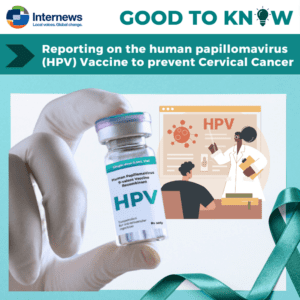Download the guide:
Cervical cancer is the fourth most common cancer to affect women worldwide, but, unlike most cancers, it is preventable by vaccination.
Cervical cancer is the fourth most prevalent form of cancer among women across the globe and the leading cause of cancer-related deaths for women in 36 countries across Africa, Asia and Latin America. A recent WHO overview shows the year 2020 saw 604,000 new cases of cervical cancer reported globally, with a devastating 342,000 women succumbing to the disease – a staggering 90% of new cases and deaths having occurred in low- and middle-income countries.
Between nations, cervical cancer death rates vary by a factor of 50, from fewer than 2 per 100,000 women in some high-income nations to more than 40 per 100,000 in poor African nations.
The human papillomavirus, also known as HPV, is the virus that causes most cases of cervical cancer and is responsible for the majority of cases of sexually transmitted infections of the reproductive system.
Download this Internews guide to learn more about reporting accurately and fairly about the HPV vaccine and cervical cancer:
